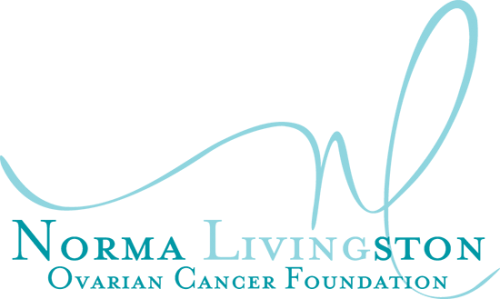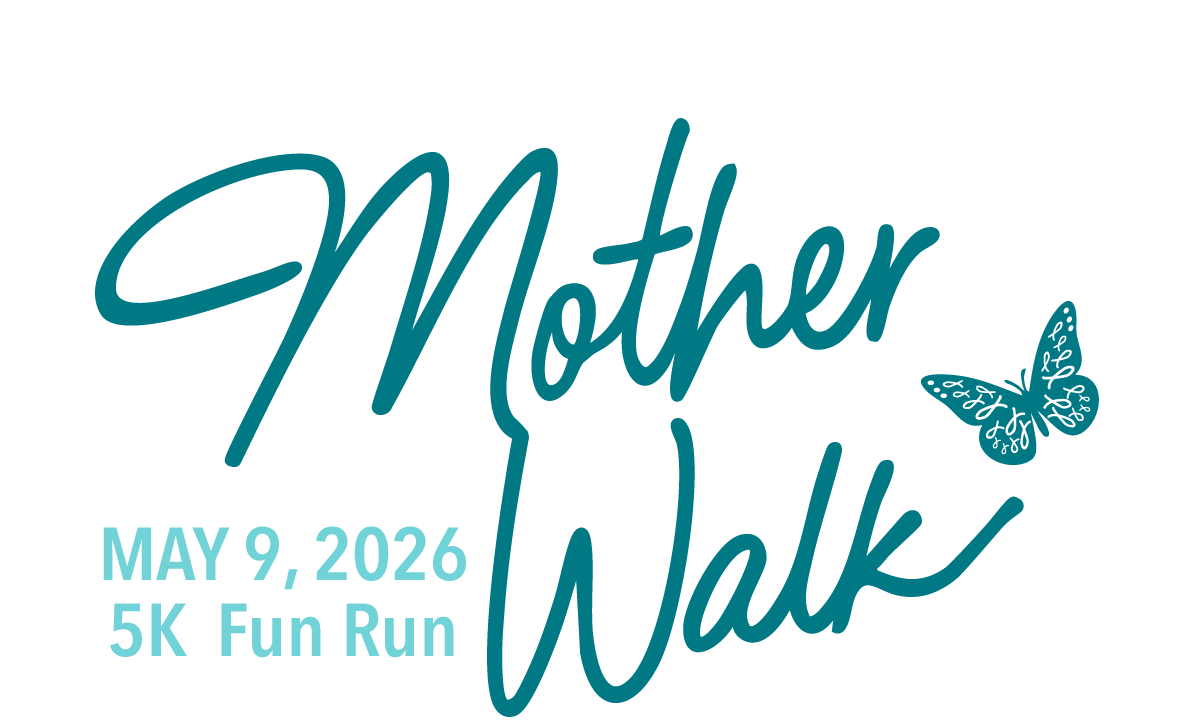Honoring Janice M. Bauer’s Legacy of Service
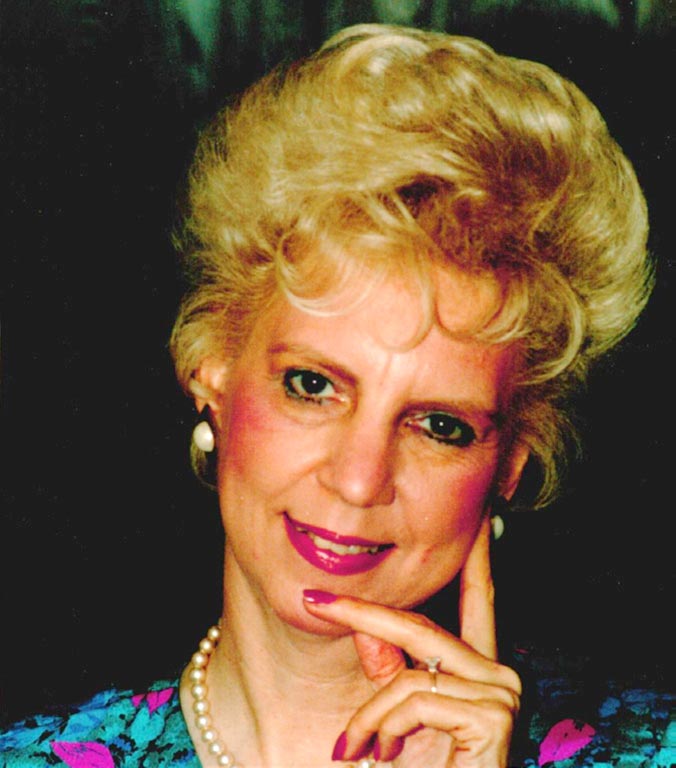
Janice M. Bauer
Angels walk among us each day, and often we never know of their battles and struggles. Some of these angels are women who have been diagnosed with cancer and are battling for their lives with all their might. Janice M. Bauer is one of these angels. For years Janice was revered in the community for her servant leadership. Despite receiving a diagnosis of ovarian cancer, and battling through surgical procedures, chemotherapy, and radiation, Janice continued to help others, including serving as caregiver for her father who was battling kidney cancer. At the age of 62, Janice lost her battle against ovarian cancer.
Just months after her passing, Janice’s daughter Bonny began her own battles with cancer. Diagnosed with breast cancer at 36 and colorectal cancer at 46, Bonny battled her cancers and continued serving her community just as her mother Janice did. Bonny beat her cancers, and with her fighting spirit, she has been able to share her survival story and inspire others. Bonny and her daughter Erica were led to open their hearts to others through the Just a Need program.
While the struggle of caretakers is nothing new, Just a Need (JAN) and the Norma Livingston Ovarian Cancer Foundation want to improve the means for support during this time.
JAN Program
Our community needs our support now more than ever. Women and their families are facing significant hurdles beyond their ovarian cancer diagnosis and treatment – they are confronting additional concerns that are weighing heavily on their minds during this health crisis.
Dealing with ovarian cancer is a difficult time for everyone involved, including the patient, the family, and even the caregivers. Ovarian cancer ranks fifth in cancer deaths among women, accounting for more deaths than any other cancer of the female reproductive system. Every 2 minutes, a woman is diagnosed with ovarian cancer, her risk of getting ovarian cancer is about 1 in 78, and her chance of dying from ovarian cancer is about 1 in 108.
Just a Need (JAN) delivers support services to patients, survivors and caregivers through financial assistance, emotional support, and medical support. With the devastating impact Covid has had on our economy, this program is desperately needed. NLOCF works closely with oncologists, oncology nurses and with infusion staff to identify patients’ and their family’s needs. Our program is cost effective, nimble, and participants can access support quickly and discretely.
Just a Need – Financial Support
JAN’s purpose is to help families of ovarian cancer patients. No woman should have to worry about making sure they have groceries in their home, gas in the car, a book to read during treatment, or even a clean pair of pajamas- every family and person is different, and so are their immediate needs. JAN provides patients the opportunity to request gift cards or other items that would help them or their family during their treatment.
Just a Need – Emotional Support
We understand the stress of a new diagnosis, the anxiety of a recurrence, and the pressures that come from being a Caregiver can be emotionally overwhelming. We have a network of ovarian cancer survivors, health care partners and volunteers available to provide emotional support to anyone impacted by ovarian cancer. Survivors and loved ones can connect with these volunteers through a variety of ways; phone, video, live chat, or text in the comfort of their own home. These volunteers do not provide medical care, but offer comfort, friendship, and support.
Just a Need – Medical Support Kits
One side effect of chemotherapy is neuropathy, particularly in the hands and feet of the patient. Often irreversible and continuous throughout the individual’s life, patients may experience nerve damage, pain, and numbness. For some patients, the side effects and deficits caused by chemotherapy induced peripheral neuropathy (CIPN) are so severe that they impair daily function and diminish quality of life. CIPN can result in chemotherapy dose reductions or early treatment discontinuation, compromising effective cancer treatment and patient survival. Since cancer treatment advances have extended survival times for many patients, the long-term impact of CIPN have become increasingly important.
Studies have shown a decrease in CIPN by using cold therapy mittens and booties during treatment. By applying local cold applications to hands and feet, the cold constricts the vessels in that area, minimizing blood flow through them, thus steering the chemotherapy away from the area. The goal is to reduce the exposure of local tissues to the drug. To protect the hands and feet, frozen gloves and socks are designed to reduce the amount of drug flowing through their vessels, limiting the injury to local peripheral nerves.
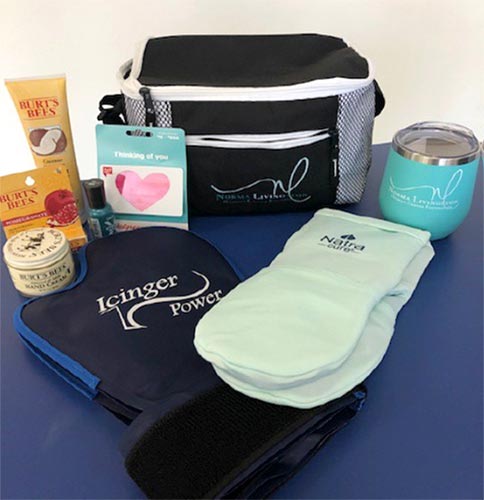
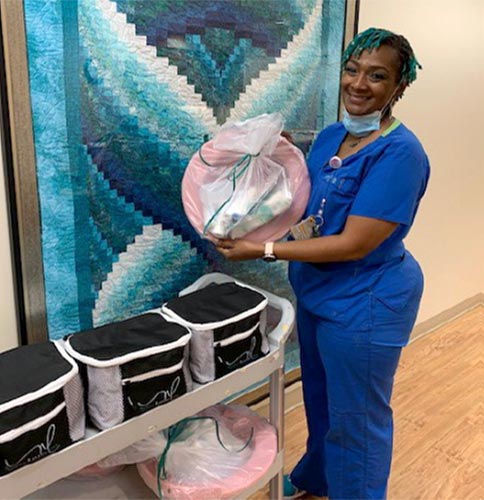
In 2019, we partnered with UAB’s Gynecologic Oncology Department to develop a neuropathy support kit. Based on research and under physician direction, these kits include a pair of cold therapy mittens and booties along with a small travel cooler for easy transportation to clinic appointments.
In 2021, a post-surgery kit was requested by UAB nursing and assembled by NLOCF to provide women with hard-to-find items that are needed after surgery. These items include a sitz basin, wash bottles, soft soaps, wash cloths and other items that can bring relief.
Ask your case manager or clinic staff for more information.









